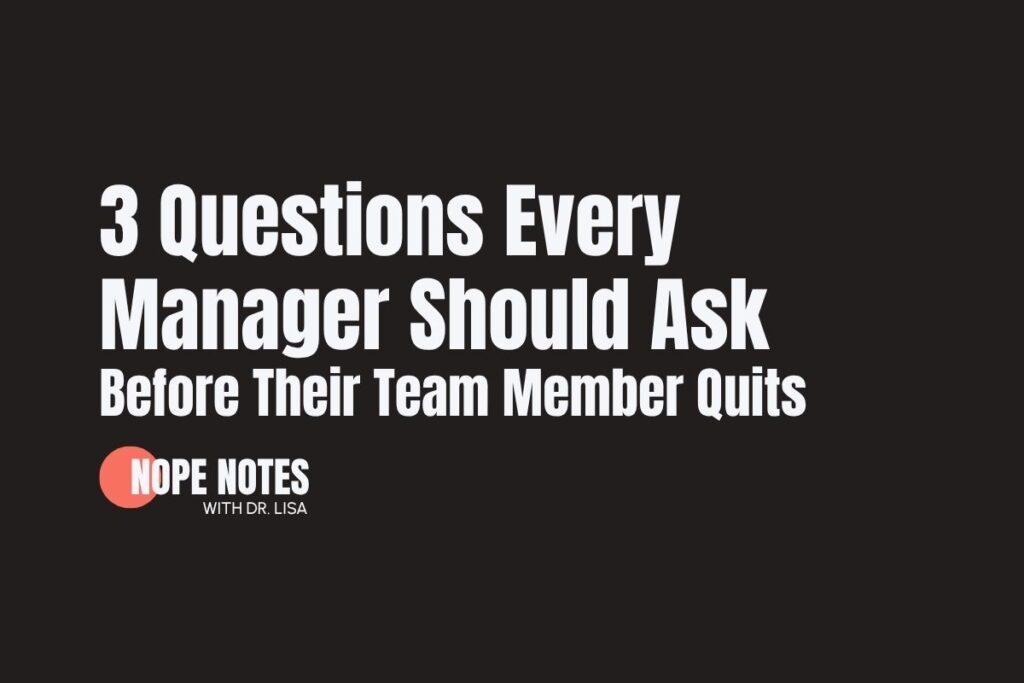You know what’s worse than a team member quitting?
When they quit quietly, six months before they hand in their notice.
They stop sharing ideas.
They show up, but they’ve mentally checked out.
And eventually, they leave—and you never saw it coming.
By then, it’s too late to fix what pushed them away.
But here’s the good news:
In most cases, a well-timed conversation could have made all the difference.
So how do you know when to step in?
You ask. Proactively. Personally. Before burnout, boredom, or a recruiter shows up.
Here are 3 questions every manager should ask before their team member walks out the door:
Question 1: “What’s feeling heavy for you right now?”
This isn’t a performance check-in. It’s a pressure check.
Many high performers are carrying invisible weight—extra tasks, emotional labor, or interpersonal conflict they haven’t voiced.
This question gives them permission to say:
- “I feel like I can’t say no.”
- “I’m stuck doing work that isn’t mine.”
- “I’m exhausted but don’t want to let anyone down.”
Once they name it, you can help redistribute, reprioritize, or reinforce boundaries.
👉🏾 Key takeaway: This isn’t about being a therapist. It’s about being a responsible leader who listens before the fallout.
Question 2: “What would progress look like for you in the next 6–12 months?”
Most people don’t expect a promotion tomorrow. But they do want signs that growth is possible.
This question uncovers:
- Career goals they’re too shy (or tired) to bring up
- Frustrations with current role fit
- Opportunities to stretch and evolve within your team
Even if the path isn’t clear yet, asking the question shows them: you care about their future, not just their output.
👉🏾 Key takeaway: Silence about advancement doesn’t mean satisfaction. It often means resignation.
Question 3: “What’s something you’d like to try—or stop doing—this quarter?”
This one opens the door to both innovation and sustainability.
Let them surface things like:
- “I’d love to lead a meeting.”
- “I want to learn something new.”
- “I’m stuck doing this admin work that drains me.”
You’ll spot untapped potential—and hidden energy drains. Both are critical if you want to keep someone engaged long-term.
👉🏾 Key takeaway: Autonomy and agency are powerful retention tools. Even small shifts can reinvigorate a disengaged team member.
You can’t fix what you don’t know about. And if you only talk about performance, you’ll miss the real story:
How your team feels about the work, the path, and their place in it.
If you’re trying to retain your best people before they burn out or check out, let’s talk.
